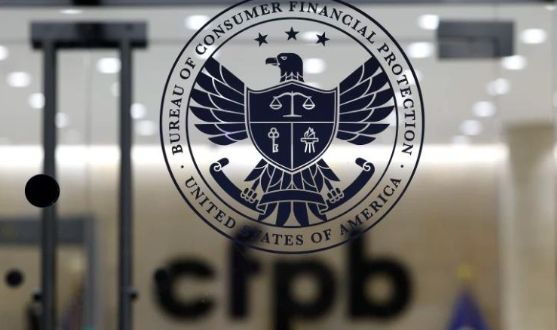
In April 2025, the U.S. Consumer Financial Protection Bureau (CFPB) fell into an unprecedented crisis. The Trump administration announced that it would cut most of the agency's staff, leaving only five staff members, which caused a public outcry. This storm is not only a microcosm of government agency reform, but also reflects the profound contradiction between regulation and power in the American political ecology.
Since February 2025, Trump has repeatedly publicly called for the dissolution of the CFPB, calling it a "symbol of over-regulation." Although a federal judge had banned the dissolution of the agency on the grounds of "protecting consumer rights," the Court of Appeal recently ruled that the government was allowed to continue layoffs. This ruling opened the door to "legal layoffs" for the Trump administration: According to the plan, the CFPB will lay off more than 95% of its 1,700 employees in stages, and will eventually retain only symbolic staff, turning it into a "shell agency." This move triggered protests from employees, with former employees accusing the government of "creating chaos," saying that the sudden layoffs put health benefits and unemployment claims in jeopardy.
The CFPB was established after the 2008 financial crisis to combat financial fraud and regulate the loan market. Its core functions include supervising financial institutions such as banks and credit card companies and handling consumer complaints. If the agency is substantially eliminated, it will lead to a break in the regulatory chain: no one will handle consumer complaints, there will be a lack of supervision of financial violations, and vulnerable groups will be more likely to become fraud targets. Some analysts pointed out that if the layoff plan is implemented, the United States may reappear in the "regulatory vacuum" on the eve of the financial crisis, exacerbating the uncertainty in the financial market.
The Trump administration's "liquidation" of the CFPB is not accidental. The logic behind it is the Republican Party's long-term criticism of "big government", believing that regulators constrain economic vitality. The cooperation with the "Department of Government Efficiency" (DOGE) led by Musk to promote layoffs further highlights this concept: regard public service agencies as "inefficient" fat and achieve fiscal austerity through streamlining. However, this logic ignores the fundamental role of regulators in maintaining market order. Democrats criticized this move as a "gift to Wall Street" that puts consumer rights below capital interests.
The decline of the CFPB not only affects the domestic situation, but also shakes the position of the United States in the global financial regulatory system. As a benchmark for financial regulation, its weakening will undermine confidence in international regulatory cooperation. In addition, the Trump administration simultaneously cut agencies such as the Agency for International Development and the Social Security Administration, exposing the retreat of global responsibility under the "isolationist" policy. Some international observers pointed out that the United States is shifting from a "global leader" to a "selfish egoist", and its policy shift may lead other countries to follow suit, exacerbating the dilemma of global governance.
Although the layoff plan has been approved by the court, the future of the CFPB is still full of variables. The Democratic-controlled Congress may intervene in the layoff process through legislation, and civil groups may also initiate lawsuits to challenge government decisions. In addition, if the regulatory vacuum leads to financial chaos, public pressure may force the government to reassess its policies. This layoff storm is actually a microcosm of the background of political polarization in the United States: when regulation collides with power, the interests of ordinary people are often damaged.
In the choice between "efficiency" and "responsibility", the Trump administration is pushing the CFPB to the edge of the cliff. Its final direction not only concerns the survival of an institution, but also tests the ability of the American democratic system to balance power and public welfare.

The European Commission released a package of measures for the automotive industry on Tuesday (December 16th), proposing to relax the requirements related to the "ban on the sale of fuel vehicles" by 2035.
The European Commission released a package of measures for …
Venezuela's Vice President and Oil Minister Rodriguez said …
On December 16 local time, the Ministry of Space Science Ex…
Recently, a highly anticipated phone call between the defen…
Right now, the world's major central banks are standing at …
Recently, according to Xinhua News Agency, the news of a tr…